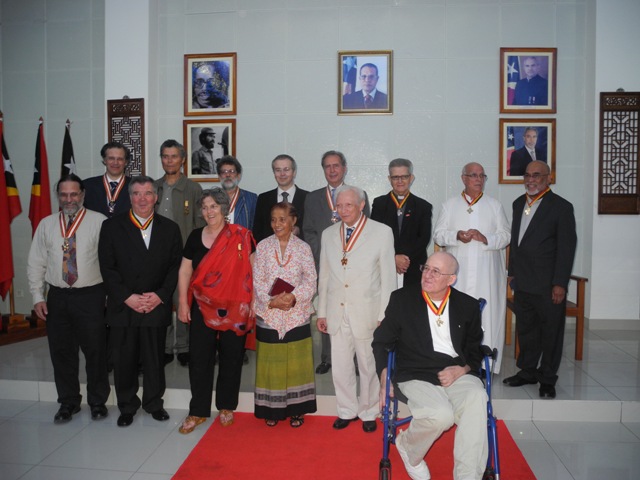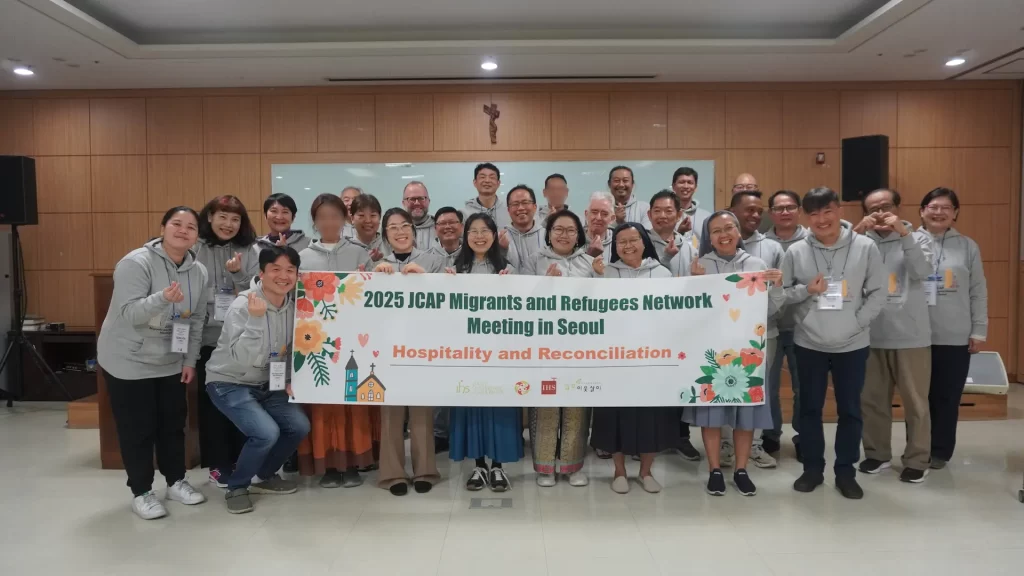Portuguese Jesuit Father José Alves Martíns was one of six consecrated religious men awarded Timor Leste’s second highest medal by the newly sworn-in President, Taur Matan Ruak, on the occasion of 10th anniversary of the country’s restoration of independence on May 20, 2012. The President conferred upon the religious the Medalha de Mérito de Dom Marito da Costa Lópes on May 22 in recognition of their contributions during the struggle and fight of the people of Timor Leste for independence during the 24 years of Indonesian occupation from 1975 to 1999.
Fr Martíns has been a missionary in Timor-Leste for 38 years. During these years, he has accompanied the Timorese in the suffering and struggles they experienced during the invasion and years of brutal occupation by Indonesia.
After completing his Licentiate in Spiritual Theology in 1974, Fr Martíns was asked by his then Provincial to go to Portuguese Timor to be a spiritual director to the seminarians of the Seminário Menor de Nossa Senhora de Fátima and to teach them Greek, Latin, and Portuguese for two years. Under the vow of obedience, Fr Martins, who had never dreamt of becoming a missionary during the years of his Jesuit formation, left his comfort zone in Europe to go to Portuguese Timor. He arrived in Timor on September 23, 1974.
In the months leading to the Indonesian invasion of Timor Leste, there were political riots which are known in the country as Coup d’etat and Contra Golpe, and many clerics and religious were given the option of leaving the country. There were ships ready to take people to Darwin, Kupang, Bali, and Jakarta. Fr Martíns and his other Jesuit companions were given the choice in September 1975, when Indonesia had already begun attacking the border of Timor Leste. Although he had expressed his desire to leave to his Superior and his companions, Fr Martíns did not feel peace. On the contrary, he was in turmoil – “My heart was not at peace. I suffered a lot”.
In his desolation, he went to talk to an elderly Jesuit, Fr Bernard Gouin SJ, about how he felt. Fr Bernard asked him, “For what do you want to go to Darwin? In moments or situations like this, the Jesuits will be the last to leave”. With this advice, he went to pray. His real vocation was confirmed in that moment of prayer, and it was to be a missionary who is with the people in their struggles. Having this confirmation, he sent a letter saying that he would not join the rest to go to Darwin. He stayed with the people, a decision he has never regretted.
Fr Martíns’ vocation was further tested during the years of Indonesian invasion and occupation. He lived with and helped the refugees who fled to the mountain where the seminary was located. On December 7, 1975, Indonesia formally invaded Timor. During the first five years of the occupation, there was no communication of any form between Timor and the world outside, as Indonesia was trying to hide its atrocities from the world.
Frequently in contact with Xanana Gusmão, the leader of the guerrilla fighters then, Fr Martíns became involved in the clandestine activities. From 1980 to 1982, Fr Martíns and Fr Felgueiras became the only channel of communication between Timor Leste and the world outside. Xanana would write messages and Fr Martíns would help him smuggle those messages outside through some of the religious who came to visit Timor Leste at that time. He would also smuggle in messages and things such as a transmission radio for Xanana and his guerrilla men in the jungles. His efforts earned Fr Martíns the codename “Kaer Metin” which means “hold it tight” or “secure it” in English.

Parabéns e bom sucesso, Pe. José Alves Martíns, SJ.






